|
| Opening Remarks |
| Wednesday, October 7, 2020 |
| 8:15 AM–8:30 AM EDT |
| Online |
| Chair: Mark A. Mattaini (Jane Addams College of Social Work-University of Illinois at Chicago) |
The conference chair will present opening remarks. |
|
| |
| |
|
| The Consequences of Ignoring the Changing Climate |
| Wednesday, October 7, 2020 |
| 8:30 AM–9:30 AM EDT |
| Online |
| Domain: Systems |
| Chair: Mark A. Mattaini (Jane Addams College of Social Work-University of Illinois at Chicago) |
| CE Instructor: Mark A. Mattaini, Ph.D. |
| Presenting Author: LONNIE THOMPSON (The Ohio State University) |
| Abstract: Our greatest challenge in the 21st century is dealing with unprecedented global-scale climate and environmental issues. Here we review the global evidence, from the highest most remote regions of our planets to our own backyards, for accelerating rates of climate change and the rising risk of abrupt climate events. How climate changes and how we adapt to it affects every aspect of our existence, such as national and global economies, agriculture, quality of life, societal stability, human and animal migration, disease vectors, availability of food and safe water, even the possibility for life itself to exist. The effects of climate change in the US and other regions will also affect our social and political systems in profound ways. For example, the accelerating retreat of glaciers and ice sheets from the tropical mountains to the polar regions will have negative effects on the economy and agriculture of many of the most populated regions of the world. Mountain regions and surrounding environs cover a quarter of the Earth’s land surface, are home to a quarter of the world’s population, and are centers of biological and cultural diversity. Mountain glaciers serve as “the water towers of the world” and are at the headwaters of many river basins that supply water to over half of humanity. Thus, the disappearance of glaciers throughout the high mountains, especially in the Andes and the Himalaya, is a great cause of concern for not only the populations downstream but also the very diversity of life on the planet. Furthermore, as the water resources of these regions decline, the results will include conflicts between nations and mass migration to countries such as the US, Canada, and northern Europe. |
| Instruction Level: Intermediate |
| |
| LONNIE THOMPSON (The Ohio State University) |
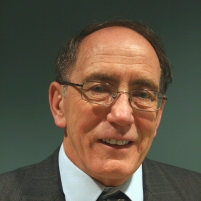 Lonnie G. Thompson is a Distinguished University Professor in the School of Earth Sciences and a Research Scientist in the Byrd Polar Research Center at The Ohio State University. His research has propelled the field of ice core paleoclimatology out of the Polar Regions to the highest tropical and subtropical ice fields. He and the OSU team have developed lightweight solar powered drilling equipment for acquisition of histories from ice fields in the tropical South American Andes, the Himalayas, and on Kilimanjaro. These paleoclimate histories have advanced our understanding of the coupled nature of the Earth’s climate system. Special emphasis has been placed on the El Niño and monsoon systems that dominate the climate of the tropical Pacific and affect global-scale oceanic and atmospheric circulation patterns. His observations of glacier retreat over the last three decades confirm that glaciers around the world are melting and provide clear evidence that the warming of the last 50 years is now outside the range of climate variability for several millennia, if not longer. He has published 245 peer-reviewed publications including several in the journal Science, led 64 field programs, and secured 76 research grants as either the PI or as a Co-PI. Lonnie has been recognized with many honors and awards including the National Medal of Science, the Tyler Prize (the World Prize for Environmental Achievement), and the Dan David Prize. In addition, he is a Fellow of the American Geophysical Union and the American Association for the Advancement of Science, and an elected member of the American Philosophical Society and the National Academy of Sciences as well as a foreign member of the Chinese National Academy of Sciences. Lonnie G. Thompson is a Distinguished University Professor in the School of Earth Sciences and a Research Scientist in the Byrd Polar Research Center at The Ohio State University. His research has propelled the field of ice core paleoclimatology out of the Polar Regions to the highest tropical and subtropical ice fields. He and the OSU team have developed lightweight solar powered drilling equipment for acquisition of histories from ice fields in the tropical South American Andes, the Himalayas, and on Kilimanjaro. These paleoclimate histories have advanced our understanding of the coupled nature of the Earth’s climate system. Special emphasis has been placed on the El Niño and monsoon systems that dominate the climate of the tropical Pacific and affect global-scale oceanic and atmospheric circulation patterns. His observations of glacier retreat over the last three decades confirm that glaciers around the world are melting and provide clear evidence that the warming of the last 50 years is now outside the range of climate variability for several millennia, if not longer. He has published 245 peer-reviewed publications including several in the journal Science, led 64 field programs, and secured 76 research grants as either the PI or as a Co-PI. Lonnie has been recognized with many honors and awards including the National Medal of Science, the Tyler Prize (the World Prize for Environmental Achievement), and the Dan David Prize. In addition, he is a Fellow of the American Geophysical Union and the American Association for the Advancement of Science, and an elected member of the American Philosophical Society and the National Academy of Sciences as well as a foreign member of the Chinese National Academy of Sciences. |
|
| |
| |
|
| Climate Change Symposium |
| Wednesday, October 7, 2020 |
| 9:30 AM–10:30 AM EDT |
| Online |
| Domain: Systems |
| Chair: Mark A. Mattaini (Jane Addams College of Social Work-University of Illinois at Chicago) |
| CE Instructor: Mark A. Mattaini, Ph.D. |
| Abstract: This symposium will present topics related to the options we have in facing the intensifying dangers of global warming. Presenters will discuss community interventions as well as the existing research and empirical knowledge that may inform our intervention. Behavioral scientists dedicated to the mission of science for a better world will discuss how we can begin working to preserve the precious resources and planet we inhabit. |
| Instruction Level: Intermediate |
| Learning Objectives: At the conclusion of the presentation, participants will be able to: (1) describe key features of “sticky” interventions related to global warming that persist over time and enable their expansion to large populations; (2) outline assessment of communities now suffering from climate disasters and the features of their cultural contingencies that influence their resilience; (3) describe organizational design principles governing collective action relevant to managing common pooled resources that promote valuing of natural resources over unchecked consumption; (4) name at least three ways in which communities can reduce greenhouse gas emissions; (5) describe experimental methods for assessing the impact of community interventions on greenhouse gas emissions; (6) describe a strategy for organizing an entire community to comprehensively address the problem of reducing greenhouse gas emissions. |
| |
Reviewing Experimental Research on Reducing CO2-Emissions |
| MAGNUS JOHANSSON (Oslo Metropolitan University) |
| Abstract: The Climate Change Task Force of the Behavioral Science Coalition is conducting a systematic review of experimental research to reduce carbon dioxide emissions and this presentation will outline the results. The scope of the review is partially based on Hawken’s (2017) list of highest impact areas, where electricity, food and refrigeration dominated the top 10. Searches were conducted in two databases to find research targeting communities, households, organizations and policy initiatives, while also mapping sources of funding and research institutions involved in relevant research on climate change. The outcome of this review will be a useful reference for anyone seeking to contribute significant work in reducing our carbon footprints and move towards a sustainable world. |
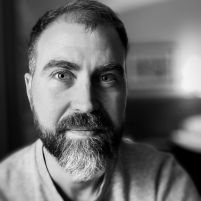 Magnus Johansson is a licensed psychologist, former CEO of a private care organization, with 10 years of experience working as a consultant, primarily with leadership and organizational development. He has also done work in prevention, creating a cultural adaption and pilot trial of the PAX Good Behavior Game in Sweden. In 2017, Magnus initiated a research project to develop a measure of Nurturing Work Environments, and to investigate the effects of using evidence-based kernels to improve nurturance. He is a founding member of the Climate Change Task Force of the Behavioral Science Coalition. Magnus Johansson is a licensed psychologist, former CEO of a private care organization, with 10 years of experience working as a consultant, primarily with leadership and organizational development. He has also done work in prevention, creating a cultural adaption and pilot trial of the PAX Good Behavior Game in Sweden. In 2017, Magnus initiated a research project to develop a measure of Nurturing Work Environments, and to investigate the effects of using evidence-based kernels to improve nurturance. He is a founding member of the Climate Change Task Force of the Behavioral Science Coalition. |
| |
Community Interventions: One Strategy for Reducing Greenhouse Gas Emissions |
| ANTHONY BIGLAN (Oregon Research Institute) |
| Abstract: Community interventions have the potential to accelerate the reduction in greenhouse gas emissions. Much of the research on reducing individual, household, and organizational emissions has focused on only one of these entities. However, a comprehensive multi-sector community effort has the potential to promote synergies that increase impact in each sector. For example, a school-based intervention that is designed to foster parent-child discussion1 of climate change could influence parents to become more favorable to proposed policy changes in their workplace and their community. This presentation will provide a brief overview of the state of empirical knowledge about community interventions to affect GHG emissions. It will also address the methodological issues involved in experimentally evaluating comprehensive community interventions to reduce GHG emissions. |
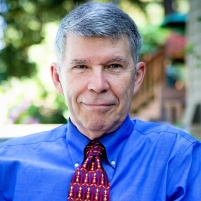 Anthony Biglan, Ph.D., is a Senior Scientist at Oregon Research Institute. He is the author of The Nurture Effect: How the Science of Human Behavior Can Improve our Lives and Our World. Dr. Biglan has been conducting research on the development and prevention of child and adolescent problem behavior for the past 30 years. His work has included studies of the risk and protective factors associated with tobacco, alcohol, and other drug use; high-risk sexual behavior; and antisocial behavior. He has conducted numerous experimental evaluations of interventions to prevent tobacco use both through school-based programs and community-wide interventions. And, he has evaluated interventions to prevent high-risk sexual behavior, antisocial behavior, and reading failure. In recent years, his work has shifted to more comprehensive interventions that have the potential to prevent the entire range of child and adolescent problems. He and colleagues at the Center for Advanced Study in the Behavioral Sciences published a book summarizing the epidemiology, cost, etiology, prevention, and treatment of youth with multiple problems (Biglan et al., 2004). He is a former president of the Society for Prevention Research. He was a member of the Institute of Medicine Committee on Prevention, which released its report in 2009 documenting numerous evidence-based preventive interventions that can prevent multiple problems. As a member of Oregon’s Alcohol and Drug Policy Commission, he is helping to develop a strategic plan for implementing comprehensive evidence-based interventions throughout Oregon. Anthony Biglan, Ph.D., is a Senior Scientist at Oregon Research Institute. He is the author of The Nurture Effect: How the Science of Human Behavior Can Improve our Lives and Our World. Dr. Biglan has been conducting research on the development and prevention of child and adolescent problem behavior for the past 30 years. His work has included studies of the risk and protective factors associated with tobacco, alcohol, and other drug use; high-risk sexual behavior; and antisocial behavior. He has conducted numerous experimental evaluations of interventions to prevent tobacco use both through school-based programs and community-wide interventions. And, he has evaluated interventions to prevent high-risk sexual behavior, antisocial behavior, and reading failure. In recent years, his work has shifted to more comprehensive interventions that have the potential to prevent the entire range of child and adolescent problems. He and colleagues at the Center for Advanced Study in the Behavioral Sciences published a book summarizing the epidemiology, cost, etiology, prevention, and treatment of youth with multiple problems (Biglan et al., 2004). He is a former president of the Society for Prevention Research. He was a member of the Institute of Medicine Committee on Prevention, which released its report in 2009 documenting numerous evidence-based preventive interventions that can prevent multiple problems. As a member of Oregon’s Alcohol and Drug Policy Commission, he is helping to develop a strategic plan for implementing comprehensive evidence-based interventions throughout Oregon. |
| |
Behaviors and Practices Relevant to Prevention and Resilience |
| MARK ALAVOSIUS (Praxis2LLC) |
| Abstract: Individual behaviors and organizational practices that slow, prevent or adapt to global warming entail much behavior change from “business as usual”. It is clear that greenhouse gas emissions continue despite efforts under the Paris Accord to reduce them. We have not stopped/reversed warming and time is running out. A challenge to constraining ourselves to address climate change is increasing the current value of those behaviors to individuals, organizations and communities and fostering consideration of their value to future generations. A framework for governing consumption to preserve natural capital for future generations might consider how climate impacts affect communities, how those suffering now respond to climate crises and what agencies determine needed “sticky” interventions that persist over time and attract others to invest in their expansion. Central to preparation of curricula topics for what lies ahead are (1) assessments of communities now suffering, (2) understanding principles governing collective action, (3) interventions and policies that define contingencies and (4) organizational models that promote valuing of natural resources over unchecked consumption. |
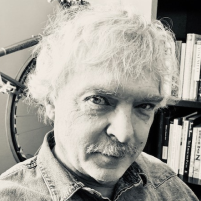 Mark P. Alavosius, Ph.D. is President of Praxis2LLC, providing behavior science applications to high performance organizations and a graduate faculty in psychology (Behavior Analysis Program) at the University of Nevada, Reno. He was a faculty member in psychology at Western Michigan University and West Virginia University. He earned his BA from Clark University (1976) MS (1985) and Ph.D. (1987) in Psychology from the University of Massachusetts at Amherst. He is an associate editor of the Journal of Organizational Behavior Management and on the editorial board of Behavior and Social Issues. He was president of the Nevada Association for Behavior Analysis and program coordinator for the CSE (Community, Social, Ethics) area of ABAI. He helped found BASS (Behavior Analysis for Sustainable Societies – an ABAI special interest group) and served as the first BASS chairperson. He has been a Trustee of the Cambridge Center for Behavioral Studies for many years and chaired their Commission for the Accreditation of behavioral safety programs from 2010-2016. He continues to serve as a CCBS commissioner for accreditation of behavior-based safety applications. His interests include transferring behavior science to advance socially valid outcomes in organizations and developing behavioral systems to improve work performance in the areas of health, safety and the environment. Dr. Alavosius was Principal Investigator of two Small Business Innovations Research Grants from CDC/NIOSH to test behavioral safety technologies for small employers. Since the 1980s, Dr. Alavosius has provided over 230 publications and conference presentations. |
|
| |
| |
|
| Behavioral Science and Community Health Improvement |
| Wednesday, October 7, 2020 |
| 11:00 AM–12:00 PM EDT |
| Online |
| Domain: Systems |
| Chair: Mark A. Mattaini (Jane Addams College of Social Work-University of Illinois at Chicago) |
| CE Instructor: Mark A. Mattaini, Ph.D. |
| Presenting Author: VINCENT FRANCISCO (University of Kansas) |
| Abstract: While the field of applied behavioral science has provided many solutions for individual-level behavior change, much work is left to be done to ensure that these interventions and strategic approaches reach their potential to improve population-level health impacts. This presentation will focus on the advantages of integrating three seemingly disparate fields—behavioral science, community psychology and public health. By integrating key aspects of these fields of study, we can take advantage of the key strengths of each field and fulfill the promise of applied behavior analysis in creating a context which is more successful than before. Theoretical underpinnings of this approach will be presented, and examples of successful adaptation and intervention will be provided. |
| Instruction Level: Intermediate |
| Learning Objectives: At the conclusion of the presentation, participants will be able to: (1) identify the issues related to understanding the influence of culture on behavior; (2) apply behavior analytic principles conceptually at every level of the social ecology; (3) communicate how behavior analysis can expand the science and practice of behavior change to achieve population-level behavior change. |
| |
| VINCENT FRANCISCO (University of Kansas) |
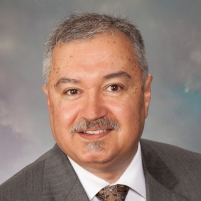 Dr. Vincent Francisco is Kansas Health Foundation Professor of Community Leadership in the KU Department of Applied Behavioral Science, and Director of the Center for Community Health and Development, a World Health Organization Collaborating Centre at the University of Kansas. In his work, he uses behavioral science methods to help understand and improve conditions that affect population health and health equity. He publishes widely in the areas of health promotion, capacity building, and community-based research and intervention. Dr. Francisco is a co-developer of the Community Tool Box, a widely-used Internet-based resource for promoting community health and development.
He brings expertise and experience to implementing community–based research, especially for prevention of HIV and chronic disease. He has years of experience mentoring undergraduate and graduate researchers and practitioners with community-based organizations throughout the United States and abroad. He has experience designing and implementing community-based and participatory HIV and sexual risk reduction interventions since he was a member of the Adolescent Medicine Leadership Group, Chair of the Community Prevention Leadership Group, and a member of the Executive Committee of the NIH Adolescent Trials Network for HIV/AIDS Interventions from 2003 through 2011. He has 11 years of experience in partnering with community-based organizations in North Carolina for applied health promotion research that includes access to care, risk reduction for HIV and sexual risk reduction, as well as capacity building for empowerment of marginalized groups.
In addition, he has considerable experience working in residential and day treatment programs (e.g., Spaulding Youth Center, Rhode Island Hospital), working on primary prevention of youth violence, drug and alcohol use among teens, teen pregnancy prevention, diabetes and cardiovascular disease prevention. He has been a consultant with numerous federal and state agencies on community-based and community-engaged approaches to prevention and treatment of behavioral disorders, and is recognized internationally as a resource among foundations and governmental agencies. |
|
| |
| |
|
| Shared Security: A Vision for Sustainable Peace and Security for All |
| Wednesday, October 7, 2020 |
| 1:00 PM–2:00 PM EDT |
| Online |
| Domain: Systems |
| Chair: Mark A. Mattaini (Jane Addams College of Social Work-University of Illinois at Chicago) |
| CE Instructor: Mark A. Mattaini, Ph.D. |
| Presenting Author: KERRI KENNEDY (American Friends Service Committee) |
| Abstract: People across the world face growing insecurity. Violent conflict is spreading and intensifying, economic inequality is widening, and the climate is in jeopardy. At the same time, never have the fates of individual, communities and nations been so intertwined. And never have our safety and well-being depended so much on the safety and well-being of others. The prevalent narrative that increased militarization equals security leads to increased violence at state, local and individual levels, spreading fear and insecurity, fomenting future violence. In this talk, Kerri will explore Shared Security, our attempt to reframe security as being inclusive and egalitarian and grounded in the wellbeing of people rather than in the interests of nation states. The presentation will cover strategies where individuals and communities were able to use active nonviolence and peacebuilding strategies to reduce conflict, address community trauma associated with violence and to make positive structural changes that promote peace and justice for all. |
| Instruction Level: Intermediate |
| Learning Objectives: At the conclusion of the presentation, participants will be able to: (1) explain how violence affects individual and community health using social and neuroscience; (2) describe non-violent and community engagement models that create positive change; (3) apply best practices for social change and violence reduction. |
| |
| KERRI KENNEDY (American Friends Service Committee) |
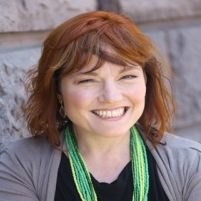 Kerri Kennedy serves as the International Associate General Secretary for American Friends Service Committee (AFSC) overseeing AFSC’s global work in 17 countries. She is a global peacebuilder and international executive with twenty years of experience leading international peace and justice organizations. She has spent her career working to reduce conflict and structural violence globally and to ensure that all have a voice in policy and politics. She is a Truman National Security Fellow, the Vice Chair of the Alliance for Peacebuilding and the co-editor of the book Indivisible: Global Leaders for Shared Security. Kerri Kennedy serves as the International Associate General Secretary for American Friends Service Committee (AFSC) overseeing AFSC’s global work in 17 countries. She is a global peacebuilder and international executive with twenty years of experience leading international peace and justice organizations. She has spent her career working to reduce conflict and structural violence globally and to ensure that all have a voice in policy and politics. She is a Truman National Security Fellow, the Vice Chair of the Alliance for Peacebuilding and the co-editor of the book Indivisible: Global Leaders for Shared Security. |
|
| |
| |
|
| Toward a More Just and Effective Response to Youth Homelessness |
| Wednesday, October 7, 2020 |
| 2:00 PM–3:00 PM EDT |
| Online |
| Domain: Systems |
| Chair: Mark A. Mattaini (Jane Addams College of Social Work-University of Illinois at Chicago) |
| CE Instructor: Mark A. Mattaini, Ph.D. |
| Presenting Author: CASEY HOLTSCHNEIDER (Northeastern Illinois University) |
| Abstract: Each year, an estimated 4.2 million unaccompanied youth ages 13-25 experience homelessness in the United States. The threats facing young people in housing crisis are many and their potential impacts, harrowing. Youth are at high risk for physical and sexual victimization, mental and physical illness, involvement with the criminal justice system, and face serious threats to their education, their future economic stability, and their lives. This presentation will critically examine the current approach to services for youth in situations of homelessness in the United States. Directly informed by the lived experience of young people, it calls for a shift in our understanding of the nature and scope of the problem and consequently, our practice and policy strategies being implemented to address it. |
| Instruction Level: Intermediate |
| Learning Objectives: At the conclusion of the presentation, participants will be able to: (1) describe the general scope and nature of youth homelessness in the United States; (2) identify harms youth experience as a result of current policy and practice approaches; (3) explain alternative strategies to better support young people at both a practitioner and structural level. |
| |
| CASEY HOLTSCHNEIDER (Northeastern Illinois University) |
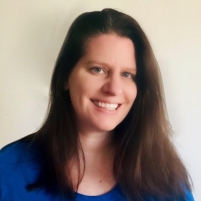 Dr. Casey Holtschneider is an assistant professor of social work at Northeastern Illinois University and has spent the last 20 years working with young people experiencing homelessness. Dr. Holtschneider completed her PhD at the University of Illinois at Chicago where her dissertation research investigated the long-term impact of housing and support services for youth in situations of homelessness in Chicago, IL. Her findings raised critical concerns with regard to: the systemic barriers and further harm youth experience when accessing services; the prioritization and quality of those services; and the continued structural violence that leads to and perpetuates poverty and homelessness for youth. In effort to act on these findings, in 2014 Dr. Holtschneider teamed up with a group of former participants in, and directors of, homeless youth services in Chicago and together they founded the LYTE Collective where Dr. Holtschneider currently serves as executive director. At LYTE, the team is now implementing youth homelessness intervention models that are youth-driven, evidence-guided, and grounded in anti-oppressive practice while they simultaneously work toward necessary structural change. Dr. Casey Holtschneider is an assistant professor of social work at Northeastern Illinois University and has spent the last 20 years working with young people experiencing homelessness. Dr. Holtschneider completed her PhD at the University of Illinois at Chicago where her dissertation research investigated the long-term impact of housing and support services for youth in situations of homelessness in Chicago, IL. Her findings raised critical concerns with regard to: the systemic barriers and further harm youth experience when accessing services; the prioritization and quality of those services; and the continued structural violence that leads to and perpetuates poverty and homelessness for youth. In effort to act on these findings, in 2014 Dr. Holtschneider teamed up with a group of former participants in, and directors of, homeless youth services in Chicago and together they founded the LYTE Collective where Dr. Holtschneider currently serves as executive director. At LYTE, the team is now implementing youth homelessness intervention models that are youth-driven, evidence-guided, and grounded in anti-oppressive practice while they simultaneously work toward necessary structural change. |
|
| |
| |
|
| Increasing Black Participation in Higher Education |
| Wednesday, October 7, 2020 |
| 3:30 PM–4:30 PM EDT |
| Online |
| Domain: Conceptual |
| Chair: Mark A. Mattaini (Jane Addams College of Social Work-University of Illinois at Chicago) |
| CE Instructor: Mark A. Mattaini, Ph.D. |
| Panelists: MARIA MALOTT (Association for Behavior Analysis International), ANGELA CAMPBELL (HACC Central Pennsylvania's Community College), MONICA PORTER (Indiana University, South Bend), MARK JACKSON (Wayne State University) |
| Abstract: According to the U. S. Department of Education, in 41 years, from 1976 to 2017, college enrollment of Black students increased only 4%, from 10% to 14% of the total student population. Furthermore, 58% of Black students who enter higher education do not graduate. In Black colleges graduation rates are even lower. A recent study of 24 Black colleges found that two thirds or more of the students who enter do not graduate.
In a university where 12% of the students are Black and only 35.4% graduate within six years, some remarkable things have happened. In the last 38 years, a White professor, committed to increasing diversity in behavior analysis, has graduated 16 Black students with MAs in behavior analysis. Four went on to earn their doctorates with him and 6 with other advisors. Many of these graduates are now using their behavior-systems-analysis skills helping the Black community build a better world.
Although this panel is focused on Black graduates from higher education, it is worth noting that the same faculty member, employing the same graduate-training system also graduated 24 international students (12 PhDs & 12 MAs) from Latin America, Asia, Europe and the Middle East, most of whom are now using their behavior-systems-analysis skills in helping their international communities.
What does it take to attain such accomplishments in higher education? In this panel, three of this professor’s Black graduates will share key features of the program’s success. In addition, they will speak of how those features influenced their own efforts to advance minority success in higher education throughout their careers and current university positions.
|
| Instruction Level: Intermediate |
| Target Audience: Board certified behavior analysts; graduate students; licensed psychologists. |
| MARIA MALOTT (Association for Behavior Analysis International) |
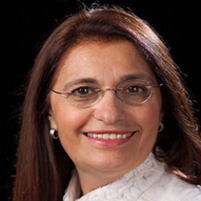 After completing her undergraduate work at Universidad Católica Andrés Bello in Venezuela, Maria E. Malott began her career in large-scale performance management. After 2 years as a performance systems analyst for the Venezuela government, she entered the graduate program in Behavior Analysis at Western Michigan University, obtaining her Ph.D. in 1987. In 1989 she was hired as the production manager at a Midwest manufacturing company and after 2 years became the vice-president of manufacturing. In 1993, she began a consulting career. She served as consultant for a variety of businesses in service, retail, manufacturing, education, government, and others. Her clients have included General Motors Corporation; Meijer, Inc.; Kellogg's; and Pharmacia & Upjohn. In all of this work, she has combined systems analysis with the analysis of individual behavior within the systems.
Since 1993, Dr. Malott has served as Executive Director/CEO of the Association for Behavior Analysis. She has used organizational behavior management to improve every aspect of the operation of ABAI, which now serves more than 9,000 members and is the parent organization for nearly 100 affiliated chapters.
Dr. Malott has served as an affiliate faculty member at five universities. She has served on five editorial boards and is the author of a book on organizational change, published in Spanish and English, and co-author of the 2nd, 3rd, and 4th editions of Elementary Principles of Behavior. She published over 35 peer review publications and over 100 newsletter articles. She has made over 300 presentations in 22 countries, including lectures and seminars in 37 universities around the world.
Dr. Malott is a fellow of ABAI, was the recipient of the 2003 Award for International Dissemination of Behavior Analysis, the 2012 Award for Distinguished Service to Behavior Analysis, the 2004 Award for Outstanding Achievement in Organizational Behavior at Management, and the 2002 Outstanding Alumni Award from the Department of Psychology at Western Michigan University. |
| ANGELA CAMPBELL (HACC Central Pennsylvania's Community College) |
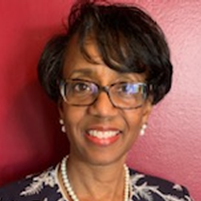 Angela M. Campbell, Ph.D., LPC, is a three-time graduate of Western Michigan University’s Psychology department. She began her post graduate work at St. Philip’s College in San Antonio, TX where she implemented a behavioral contracting system with students having difficulties passing the mandatory State exam to graduate from college. Later she spent 9 years as a Faculty Counselor and five years as the Chair of the Counseling department. She has taught undergraduate psychology courses at colleges in Texas, Michigan and Pennsylvania. She has been an international speaker and has helped train teachers and bring applied psychology to undergraduate students in Malawi, Philippines and Romania. She recently accepted the position of Executive Director of Assessment and Strategy for the Office of Student Affairs and Enrollment Management at HACC Central Pennsylvania’s Community College, a five campus College serving over 18,000 students.
In this role she is responsible for planning, managing strategic initiatives, minor process improvements and quality assurance projects that improve Student Affairs and Enrollment Management program performance. Also she works closely with SAEM executives, and external partners to establish objectives and develop and implement short & long-term strategies, overseeing SAEM assessment, and HACC's C.A.R.E Center which addresses student’s non-academic barriers such as but not limited to, food insecurity, housing deficits, health inequities through consultancy, advocacy, referrals and empowerment.
In her spare time, she has published an anthology of true stories called God Did It: Answered Prayers for Love and Marriage and has been the host of a podcast called Hope and Encouragement for your Journey since 2018. She and her husband Rodson reside in Pennsylvania and they are the proud parents of three adult daughters. Twin daughters who have graduated from Cornell and UNC Chapel Hill and most importantly are employed and their youngest daughter who recently started medical school.
|
| MONICA PORTER (Indiana University, South Bend) |
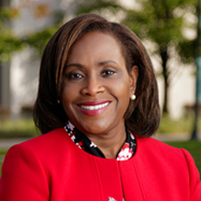 Monica Porter is a native of Pontiac, Michigan. In 1984, she completed her undergraduate program at Southern Illinois University receiving a Bachelor of Arts degree in Psychology with a double minor in Sociology and Administrative Justice. Porter continued her educational achievements at Western Michigan University obtaining a Master’s of Science degree in Industrial/Organizational Psychology in 1986, and a Ph.D. in Applied Behavioral Analysis in 1991.
In 1993, Dr. Porter served as the Deputy to the Special Assistant of Minority Affairs for the Governor of North Carolina. While serving in government, Monica managed several community projects such as; landfill detoxification, HBCU collaboration, government initiatives, and an African Trade Mission which focused on trade initiatives between North Carolina and several South African countries. While working in the Governor’s Office, she remained passionate about teaching and served as an adjunct psychology professor at Wake Technical Community College.
Dr. Porter left state government in 1998 to launch Project Development Services a consultant practice. She worked with non-profit organizations on program assessments, grant writing, and project development. As a consultant, her primary focus was to assist women-owned non-prohibit businesses.
In 2001, Dr. Porter was offered the Department Chair for Social Sciences and an Assistant Psychology Professor position at Saint Augustine’s (College) University. She served in this role for four years. In addition to teaching, her research interest focused on the HIV/AIDS pandemic regarding college women of color. She continued to serve on boards and commissions while addressing race relations, women’s empowerment, HIV/AIDS, homelessness, and domestic violence.
During the 2004-2005 academic years, Dr. Porter was awarded a Fulbright Scholarship to assist with launching and teaching in the first Psychology Program at the University of Botswana in Gaborone, Botswana. When she returned to the U.S., she was hired by the University of Michigan-Dearborn as the Director of the Women's Resource Center. In 2011, the Director for the Office of International Affairs was assigned to Dr. Porter. In 2012, she was promoted to the position of Assistant Vice Chancellor for Student Success. In 2015, she was promoted to the Assistant Vice Chancellor for Enrollment Management and Student Life.
In the fall of 2017, Dr. Porter joined Indiana University South Bend as the Vice Chancellor for Student Engagement and Success, Dean of Students and Chief Diversity Officer. In 2019, the division was reorganized, and she currently serves as the Vice Chancellor for Student Affairs & Diversity and the Dean of Students. Her goal is to assist students attending IU South Bend to be successful in their educational endeavors.
|
| MARK JACKSON (Wayne State University) |
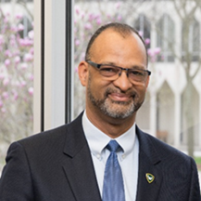 Dr. Jackson has over 30 years’ experience serving with programs that work to enhance student opportunities. He currently serves as director of the Academic Pathways to Excellence Program (APEX Scholars) at Wayne State University; an office which hosts a Summer Bridge program, provides peer tutoring and supplemental instruction, academic success workshops, and support for students on probation. Before that, he was Director of the Upward Bound Program and Director of the Academic Success Center at Eastern Michigan University. He has also served as the Dean of Students at Marygrove College and Assistant Dean for Student Affairs and Minority Programs in the College of Engineering at Wayne State University and Director of the Minority Engineering Program at the University of Illinois-Chicago.
As a self-proclaimed “under-performing” graduate of Detroit Public Schools, he attended Western Michigan University through a summer bridge program. By taking full advantage of the supports, he earned a Bachelor's Degree in Psychology, a Master's Degree in Clinical Psychology and a Doctorate in Psychology with an emphasis on Educational Systems Analysis. He has spent his career designing and implementing programs that enhance the professional development, character, and academic performance of high school and college students. He has also helped create a variety of mentoring programs that assist students in self-improvement.
As director of the APEX Scholars Program, Dr. Jackson is responsible for helping newly arrived freshmen adjust to college life and plan their academic and professional careers more strategically. He provides academic and administrative leadership as an integral member of university administrative teams, and works closely with the University Advising Center, the Academic Success Center, Undergraduate Admissions, Orientation, Financial Aid, Federal Trio Programs, academic department chairs and members of the faculty to support the APEX Scholars program and underrepresented minority students. He is a founding member of the NETWORK leadership team that supports black men in pursuing college degrees at Wayne State. He also currently serves as a Co-chair of the Wayne State Black Faculty and Staff Association.
He states that, "I firmly believe that students can make extraordinary gains when provided with the appropriate combination of opportunities and support. My research and observations have convinced me that the obstacles to student success are not purely academic, nor purely motivational. A carefully coordinated, cooperative approach, involving a commitment from not only the student, but also family, faculty, and administration is necessary to yield optimal student growth. Certainly, this is no small challenge, but when provided with the supportive personnel and resources, the positive impact on society of the commensurate increase of gainfully employed college graduates will undoubtedly out-weigh the investment.”
|
|
| |
| |
|
| Increasing Black Participation in Higher Education |
| Wednesday, October 7, 2020 |
| 4:45 PM–5:45 PM EDT |
| Online, Lounge 1 |
| Chair: Mark Jackson (Wayne State University) |
Join this networking hour to discuss increasing Black participation in higher education and related issues. |
|
| |
| |
|
| Climate Change and Behavior Analysis |
| Wednesday, October 7, 2020 |
| 4:45 PM–5:45 PM EDT |
| Online, Lounge 2 |
| Chair: Jessica Ghai (Boston University), Julia H. Fiebig (Ball State University; ABA Global Initiatives LLC) |
This networking hour will provide opportunities for conference attendees to discuss ways they think behavior analysis may be able to help advance climate change efforts, share opportunities and experiences as behavior analysts working on topics of climate change and sustainability, make connections with behavior analysts who have similar passions, and begin to think about personal action steps to engage in research and practice efforts. |
|
| |
| |
|
| Culturo-Behavior Science Verified Course Sequence |
| Wednesday, October 7, 2020 |
| 4:45 PM–5:45 PM EDT |
| Online, Lounge 3 |
| Chair: Jenna Mrljak (Association for Behavior Analysis International) |
Join this networking hour to discuss the new CBS VCS, how to apply, and more! |
|
| |